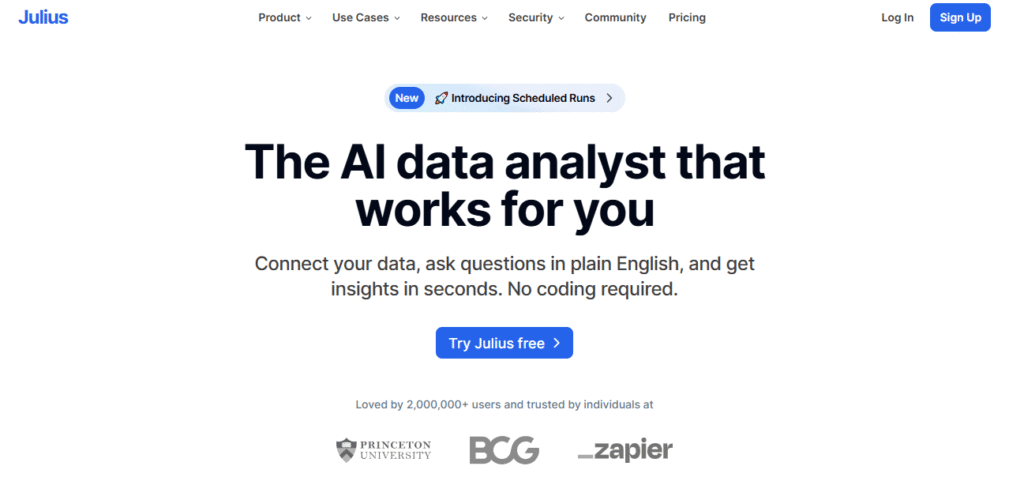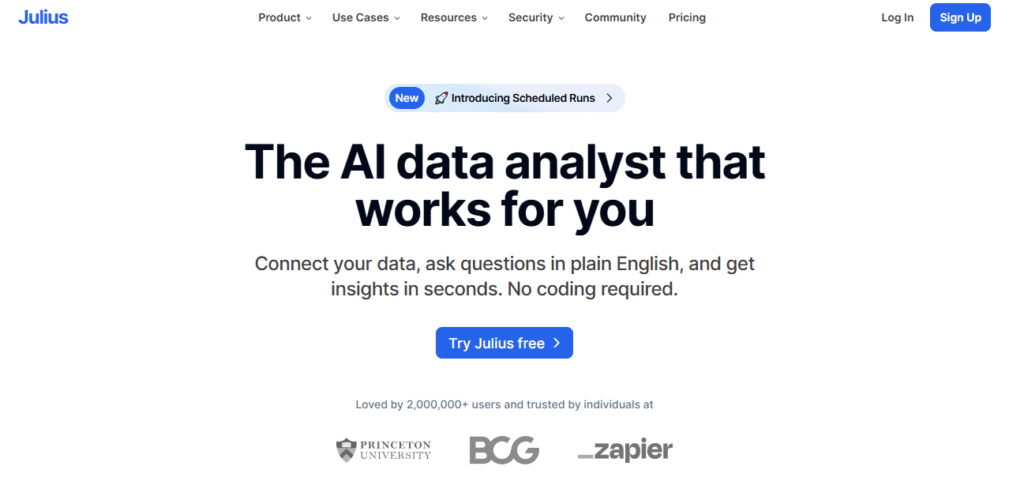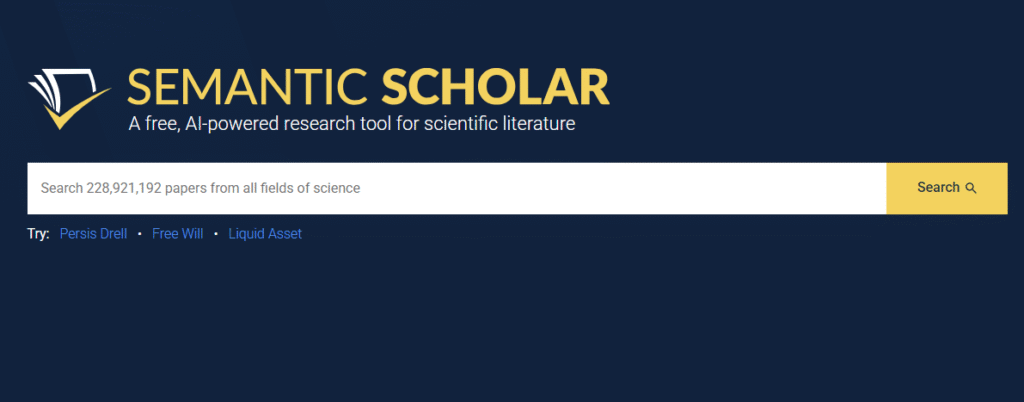Remember those late nights—staring at a blank screen, buried in academic papers, wishing you could find that one perfect source in seconds?
What if you had a smart research assistant by your side? That’s the power of artificial intelligence today. AI isn’t just a buzzword anymore—it’s reshaping how we do research.
If you’re ready to work smarter, not harder, you’re in the right place. We’ve tested and compiled a list of the best AI tools for research to help you focus on what truly matters: breakthrough ideas.
What Is AI-Powered Research?
AI-powered research means using intelligent technology to enhance your entire research process. Think of it as outsourcing the most repetitive and time-consuming tasks to a digital partner. This isn’t about having a robot write your paper for you. Instead, it’s about leveraging smart algorithms and large language models to handle the heavy lifting, so you can devote your energy to critical analysis, interpretation, and creative synthesis—the parts of research that truly require a human touch.
From brainstorming and literature discovery to data analysis and citation management, AI tools act as force multipliers. They can summarize vast amounts of text in seconds, uncover hidden patterns in complex datasets, and ensure your references are flawlessly formatted. What makes these tools so powerful is their ability to understand context, generate coherent content, and learn from your input over time.
The 6 Best AI Tools for Research in 2025
The AI landscape has exploded in recent years, and with countless tools promising revolutionary results, it’s tough to know which ones truly deliver. We’ve curated a list of six standout platforms that have proven their value—each with its own unique strengths. Whether you’re deep into quantitative analysis or navigating literature reviews, these digital assistants belong in your research toolkit.
1. Julius

If phrases like “R scripting” or “SPSS output” make you break out in a cold sweat, you’re not alone. Traditional statistical tools are powerful, but their steep learning curves can be intimidating. Julius changes the game by offering a simplified, conversational approach to data analysis. It acts as your personal statistical consultant—allowing you to ask questions in plain English and receive clear, actionable insights in return.
Julius excels in quantitative research. It doesn’t just crunch numbers; it helps you understand them. Upload your dataset and ask Julius to “find correlations between Variable A and Variable B” or “visualize trends in sales over the last quarter.” The platform will not only run the analysis but also generate polished visualizations and even guide you on how to interpret the results. It’s like having a data scientist on speed dial—making it one of the best AI tools for research that relies heavily on data.
Key Features:
- Personalized statistical guidance with step-by-step support
- Automated data visualization for identifying trends and patterns
- User-friendly interface that requires no coding experience
2. ChatGPT
It’s impossible to talk about AI in research without mentioning ChatGPT. This tool is much more than a writing assistant—it’s a versatile research partner capable of supporting you through every stage of your project. Need help brainstorming? Stuck on your literature review? Trying to decode a complex theory? ChatGPT is there to help.
During early research phases, it can help refine broad ideas into focused questions, suggest related topics, or even simulate debate around a hypothesis. When you’re neck-deep in papers, it can summarize articles, explain concepts in simple terms, and help you make connections across different sources. Its ability to engage in dialogue, remember context, and tailor responses makes it feel less like a tool and more like a collaborator.
Key Features:
- Support for multiple data formats (text, code, spreadsheets)
- Conversational follow-ups for deeper exploration
- Customizable responses for targeted insights
- Enterprise-tier security for sensitive research data
3. Consensus

What if you could ask a search engine a direct question and get an answer based on scientific consensus—not just a list of links? That’s exactly what Consensus offers. This AI-powered tool scans peer-reviewed journals and synthesizes findings to give you evidence-based answers to specific research questions.
It’s particularly useful for questions like: “Does meditation reduce anxiety?” or “Is renewable energy economically viable?” Instead of spending hours reading dozens of papers, you get a clear summary of what the majority of studies conclude. Consensus is currently optimized for topics in medicine, economics, and social sciences, but its coverage is expanding rapidly.
Key Features:
- Direct-question functionality with synthesized answers
- Focus on causal relationships and evidence-based conclusions
- Specialization in six core fields including medicine and policy
4. Scite.ai
In academic writing, citations are more than just numbers—they’re part of an ongoing conversation. Scite.ai helps you join that conversation intelligently. Its “Smart Citations” don’t just show how often an article has been referenced; they classify whether later studies supported, contrasted, or merely mentioned the original work.
This is invaluable for literature reviews and ensuring your own references are robust and relevant. You can also use Scite.ai to analyze your draft and check if your sources are still considered authoritative or if they’ve been disputed in newer publications. With a Zotero plugin and browser extension, it integrates smoothly into your research workflow.
Key Features:
- Smart Citations showing contextual reference analysis
- Access to both open and paywalled academic content
- Citation snippets with direct quotes from citing papers
- Free plugins for Zotero and browsers
5. Semantic Scholar

Semantic Scholar is like a GPS for academic literature. It uses AI to understand the meaning and connections between papers—not just keywords. This helps you quickly identify foundational works, track research trends, and see how ideas evolve over time.
One of its best features is the citation graph, which maps how papers reference one another. You can literally see the scholarly conversation unfold. Combined with AI-generated summaries and topic-based filtering, Semantic Scholar helps you navigate vast databases without getting lost. It’s especially useful for early-career researchers and those entering new fields.
Key Features:
- AI-generated summaries for fast paper triaging
- Interactive citation graphs for mapping influence
- Topic and author-based filtering
- Journal and author tracking for staying up-to-date
6. Perplexity
When you need a clear, concise, and well-sourced answer to a complicated question, Perplexity delivers. It’s not a search engine—it’s an answer engine. Type in anything from “Explain quantum entanglement” to “What’s the latest research on CRISPR gene editing?” and Perplexity will reply with a structured, referenced response.
Each answer includes footnoted sources, making it easy to verify information or dive deeper. You don’t even need an account to start using it, which makes Perplexity one of the most accessible and efficient best AI tools for research available today.
Key Features:
- Source-cited answers for reliability
- Strong performance on technical and specialized topics
- No login required
- Broad usability across disciplines
For more details, read our guide on Perplexity AI Review.
Final Thought on Best AI Tools for Research
The academic and professional research landscape has been transformed by AI. Tasks that once required painstaking manual effort—sorting through databases, formatting citations, analyzing datasets—are now streamlined through intelligent tools. But let’s be clear: AI isn’t replacing researchers. It’s elevating them.
These tools aren’t shortcuts for the lazy. They’re sophisticated assistants that handle the grind so you can focus on critical thinking, creativity, and analysis. Whether you’re a student working on a thesis, a scientist writing a grant proposal, or a professional developing a market report, AI tools can save you time, improve your accuracy, and reduce the mental fatigue that comes with big projects.
The future of research is collaborative—human intelligence amplified by artificial intelligence. So why not embrace it? Your digital research partner is ready when you are.



